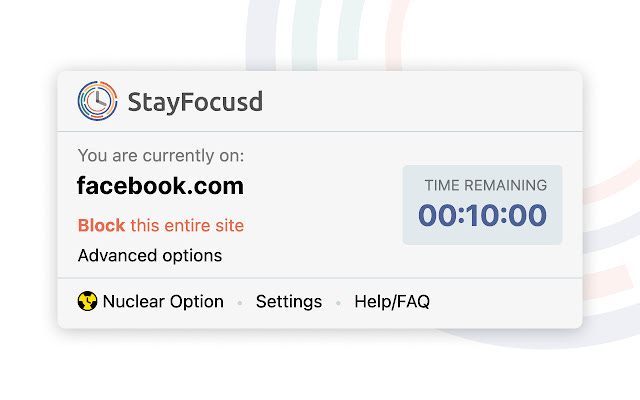I don’t know about you, but I’ve been finding it even more difficult than usual to get my writing done these days.
Typically, my habit of drinking from the spigot of online news—and I use the word “habit” charitably here—turns into gulps at the smallest political convulsion. But it’s during truly momentous times, when events like the Kavanaugh hearings, January 6th and pretty much the entire Trump administration, take over the entire media landscape, that I become a true compulsive.
I walk away from the computer oversaturated by the news…but still wanting more. I do this despite the fact I know it leaves me anxious and probably impacts my mental health.
It also challenges my ability to write—to focus on producing this Substack, for instance, or a book project I’m circling around.
Take last week, as I went about starting the last TBIWTW post about “the future of literary magazines.” The idea (along with the first few rough paragraphs) was sparked the same day news broke that Gettysburg College would shutter the famed Gettysburg Review after 35 years.
Two days later, on a Friday, I was on a Zoom with an expert on literary magazines whose quotes I’ve read in CNN stories for the past couple of years. So far so good.
But twenty-four hours after that I was stuck.
What had been a sad but timely literary development was suddenly pushed to the background by the horrific news of the Hamas terror attack and ensuing Gaza airstrikes.
In other words, the news had gone from manageable to overwhelming overnight. And each time I sat down to try and finish up my essay, I found myself instead with several browser windows open and almost none of my writing completed.
(I should add here that I write these posts mostly on the Substack interface—which, like other cloud-based apps, requires an Internet connection. The reason for drafting right in Substack vs, say, Word might make a good future post, but for now I’ll say I do this because 1) it gives me the feeling of actually producing a post, rather than a feeling of drafting something I know I’ll have to copy and paste later; and 2) there are some features—for example, tagging writers and newsletters—that can only happen in the interface).
Eventually I managed to finish and send out the post, but not before I forced myself to use a few techniques I’ve developed over the years to minimize distractions and finish work.
If you’ve also found the firehose of news has overwhelmed your ability to concentrate on writing, you may find these and similar tools useful too.
Turn off the news—by using a blocker
Of course, this one seems obvious. If you’re glued to the news and not writing, then surely the answer would be to step away from the news. But with the sort of Internet dependency I’m describing here, that’s so much easier said than done.
As Nicholas Carr wrote in The Shallows: What the Internet is Doing to Our Brains:
It’s not just that we tend to use the net regularly, even obsessively. It’s that the net delivers precisely the kind of sensory and cognitive stimuli—repetitive, intensive, interactive, addictive—that have been shown to result in strong and rapid alterations in brain circuits and functions.
Given that I’ve long known that the Internet has the power to easily distract me, I’m a big fan of apps that block Internet access. At first, my brain misses the dopamine hit, but after awhile the world I’m creating through words expands, the desire to escape writing subsides—and I get work done.
Not all Internet blockers are created equal, however. In the past I’ve used Stay Focusd, an app that runs right in your Chrome browser as an extension. I used to like this extension a lot because I could limit my time on distracting websites—say, 10 minutes on Twitter/X—after which I’d be blocked.
But the problem is that some apps like StayFocusd are rather like blunt instruments, sometimes blocking necessary websites along with distracting ones. That’s great if you’re composing offline, but less so for things like Substack posts.
Over the past two weeks I’ve been leaning on Freedom. I find the interface easy to navigate and highly customizable. For example, it allows me to group websites—blocking individual social media sites (like Twitter/X) or news sites—but leaving access to other parts of the Internet I need for research or linking while composing on Substack.
I opted to renew my annual subscription, which with an easily-acquired discount coupon came to $29, or under $2.50/month.
Over
, the director of Teaching & Learning at CUNY's Grad School, , has an incredible roundup of tools “to beat distractions.”Timed writing sessions like “Pomodoros”
When I’m at my most distracted, I find external constraints like timed writing sessions work best for me.
My favorite is the “Pomodoro Technique,” created by Francesco Cirillo back in the late 1980s. Somewhat randomly, Cirillo named his method after the Italian word for tomato because of the tomato-shaped kitchen timer he used.
The idea is simple: timed writing sprints (or “Pomodoros”) of 25 minutes, with a 5 minute break in-between. I sometimes skip the break, but you shouldn’t. The idea is really to rest and reset in between.
I love the Pomodoro Timer Pro app on my phone, but any timer with a buzzer or ringer will do.
Originally Cirillo recommended 4 sessions (or 2 hours) in a row, but personally I find I do my best work with 2 or 3 of them.
Both
at and at have good posts with more information about Pomodoro and other timed techniques—Katie’s here and Steven’s here—if you’re curious to read more.The Practice and Power of Deadlines
Finally, I’ve found the practice of committing to a weekly newsletter has transformed my relationship to writing deadlines—something that has transcended even my compulsive use of the Internet at times like right now when the news is overwhelming.
While I originally started this newsletter over the summer, I envisioned it as a way to promote both my coaching for writers and The Book I Had to Write podcast.
But having announced a newsletter and publicly committed to a publication schedule has created enough of a sense of internal obligation that it counteracts my tendency to want to distract myself from writing.
Then there’s the unique nature of Substack itself—a platform that makes writing and delivering newsletter a nearly seamless experience, and whose interface reminds in various ways that there’s an audience waiting for your words.
When I’ve found myself distracted these last two weeks, I’ve reminded myself that writing this newsletter is a deadline I want to adhere to—it’s the sort of deadline I enjoy. Maybe it’s a mindtrick, but simply affirming that choice seems to minimize—at least temporarily—the temptation of distraction.
Have you been overwhelmed by the news? Has it impacted your writing? Have you found something that helps? I’m super curious—tell me about it below in the comments.
P.S. - Internet Blocker/Accountability Update
Below, reader
recommends Toggl, a time tracker app that also has a Pomodoro timer built in, while recommends Break Timer, a Chrome browser extension.






Paul
I'll share a poem that was shared by Poetic Outlaws on Substack, by American poet Jack Gilbert
*****
A Brief for the Defense
by Jack Gilbert
Sorrow everywhere. Slaughter everywhere. If babies
are not starving someplace, they are starving
somewhere else. With flies in their nostrils.
But we enjoy our lives because that’s what God wants.
Otherwise the mornings before summer dawn would not
be made so fine. The Bengal tiger would not
be fashioned so miraculously well. The poor women
at the fountain are laughing together between
the suffering they have known and the awfulness
in their future, smiling and laughing while somebody
in the village is very sick. There is laughter
every day in the terrible streets of Calcutta,
and the women laugh in the cages of Bombay.
If we deny our happiness, resist our satisfaction,
we lessen the importance of their deprivation.
We must risk delight. We can do without pleasure,
but not delight. Not enjoyment. We must have
the stubbornness to accept our gladness in the ruthless
furnace of this world. To make injustice the only
measure of our attention is to praise the Devil.
If the locomotive of the Lord runs us down,
we should give thanks that the end had magnitude.
We must admit there will be music despite everything.
We stand at the prow again of a small ship
anchored late at night in the tiny port
looking over to the sleeping island: the waterfront
is three shuttered cafés and one naked light burning.
To hear the faint sound of oars in the silence as a rowboat
comes slowly out and then goes back is truly worth
all the years of sorrow that are to come.
"At first, my brain misses the dopamine hit, but after awhile the world I’m creating through words expands, the desire to escape writing subsides—and I get work done."
I sooo feel this and love how you describe it. It made me feel understood but/and also inspired as your words reminded me of the wonderful feeling when "the world I’m creating through words expands"! Hooray! Thank you, Paul!